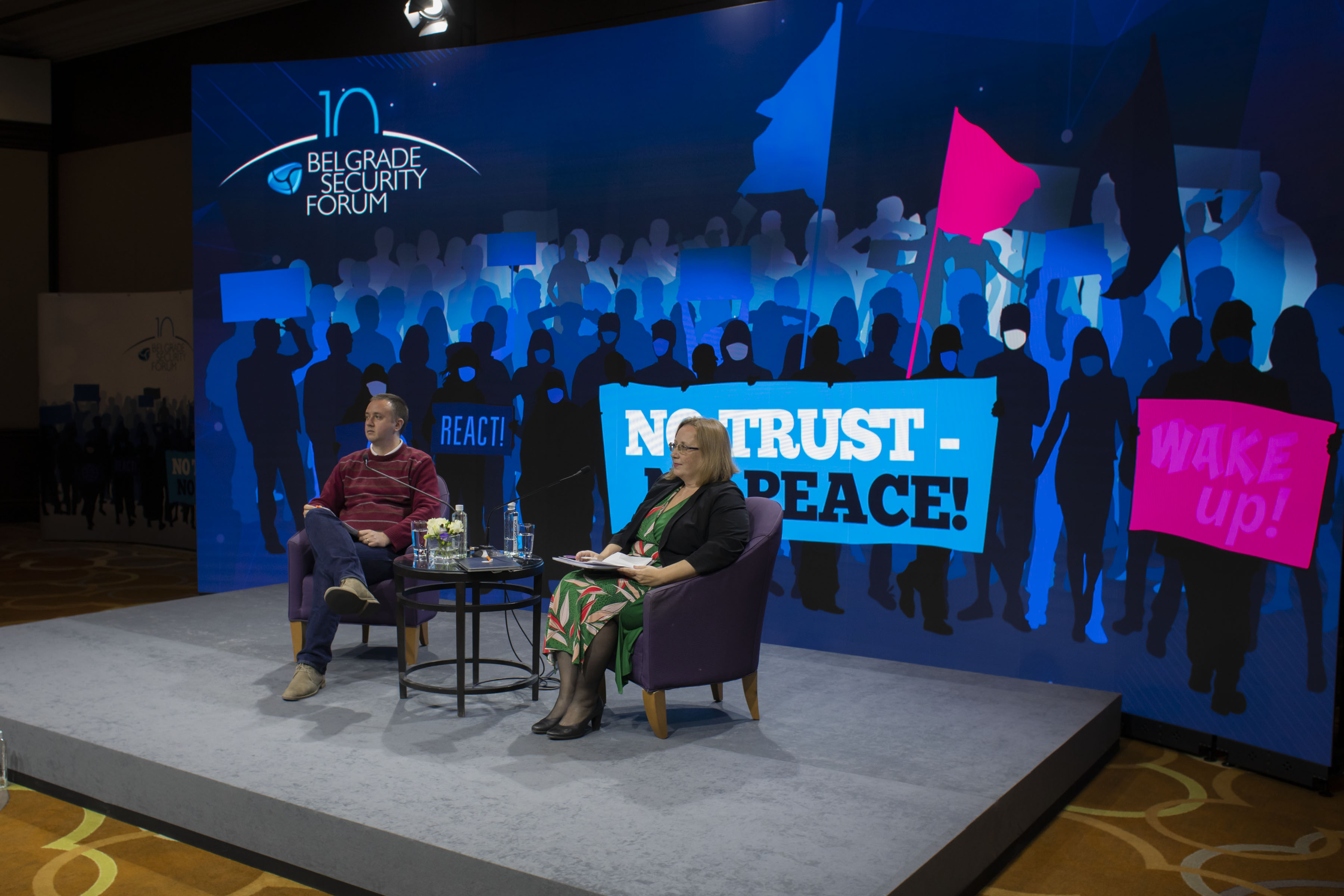Seeking Stability for Western Balkans, Getting State Capture in Return
General debate on this panel was about the influence of the EU and the rest of the international community on conflict-resolution in the Western Balkans region, especially between Kosovo and Serbia. Participants agreed that the reforms promised by the European integration process, as well as integration into the wider international community, had led to unintended consequences of state capture.
Donika Emini, PhD candidate in Politics and International Relations at the University of Westminster, London, author of paper „Promoting Stability and Facilitating State Capture“, noted in particular the role of the EU in the conflict-resolution in the Western Balkans, which has inadvertently become part of the state capture in the countries of the region. The EU had hoped to bring the Balkan states closer together and speed up their integration into the EU community, but reforms were there to bring stability to the region, and not to transform states into democracies. She also pointed out that Chapter 35 in the accession negotiations with the EU, related to the normalization of relations between Serbia and Kosovo, supplanted other chapters in the negotiations, such as Chapter 34: Institutions. In these states, the leaders of the ruling political elites absorbed all the institutions, leaving no room for the opposition.
International community, including the EU, in search for counter-parties for dialog, have undermined the importance of reforms in the region, said Emini.
Christopher Jackson, PhD Candidate, Georgia State University, United States of America, pointed out the main problem – the integration of ethnically distinct enclaves into centralized security institutions, which Emini also recognized as a leading problem in Brussels regarding the issue of Kosovo and Serbia. This problem forms clear patterns of violence in those territories. Persistence of these enclaves beyond institutionalised policing undermines longer term stability. Institutional arrangements after conflict left the local elites marginalised by state, that led to use of violence as a means of political competition in Kosovo. This has slightly changed after 2013, and Brussels agreement, which resulted in fewer violent reactions.
Still, the presence of the international military units and police, which outnumbered civilian police, is seen as the problem as they are not locally accountable. This effects the patterns of violence in South Serbia and Kosovo, which did not change in more than 15 years after conflict.
Damir Kapidžić, Associate Professor, Faculty of Political Science, University of Sarajevo, used multi-level and comparative analysis to address the state capture problem in the Western Balkans. He said that the state capture can occur at lower levels of governance in states which have some forms of autonomy and federalism. Subnational governance creates uneven electoral powers in those regions, which tends to keep subnational elites in power practically unlimitedly. Kapidžić noted that state capture affect the media through the information control by the subnational elite. He regarded the problem with the Republic of Srpska and the restriction of freedoms in this part of Western Balkan.
Another problem for democracy in the Western Balkans represents the limiting of opposition, which is represented by disuniting it at local levels, and using justice mechanisms to go after them.
There is electoral manipulation via influence of money, or people who get elected changing their party allegiance right after the elections. Central level of government should have major role in containing authoritarian tendencies at local levels.
Discussant Marko Žilović, PhD candidate at the George Washington University, gave a few comments on the papers, pointing out their main findings – the power sharing institutions effecting post-conflict institutions and the state capture as an unintended consequence of peace-building efforts. He addressed the two different points of the papers, first being international influence on the state capture and second the domestic influence on this process.








